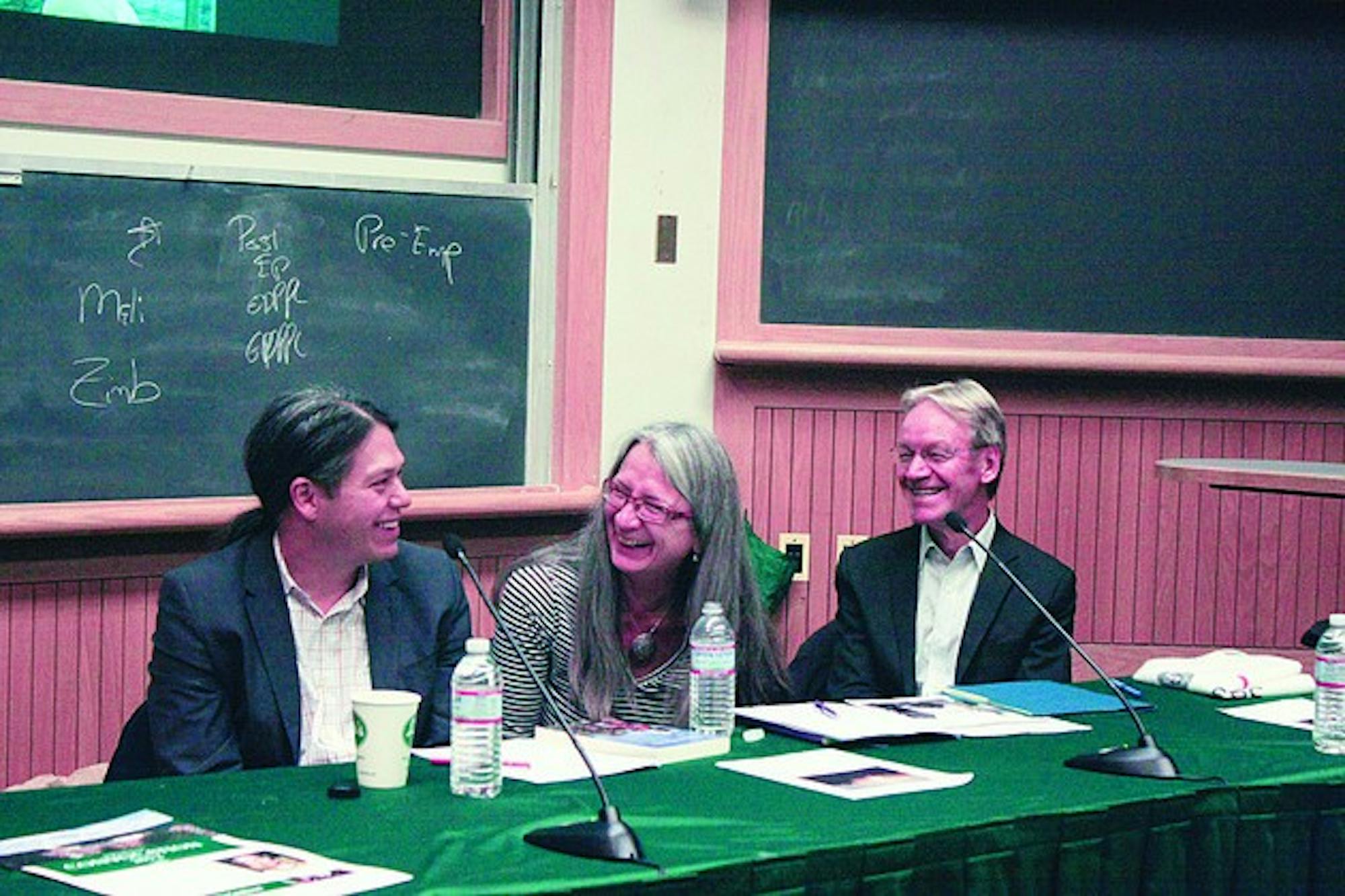The symposium marked the culmination of the speakers' visits, during which they met with students and professors to discuss the future of Native American studies. Government and Native American studies professor Dale Turner, who organized and moderated the symposium, said he felt it facilitated a forward-looking conversation.
The three speakers presented their lectures, each focusing on their disciplines within Native American studies and including international context in the form of the 2007 United Nations Declaration on Rights of Indigenous People.
Native American studies and indigenous studies are defined by discussion between communities, disciplines, peoples and cultures, Turner said.
"I think that the discussion shows that diversity is out there, and we're talking about those kinds of relations and what that means and where we can go from here," Turner said.
In her speech, Napoleon noted that it is important to use the present and not the past tense in discussing indigenous issues.
Blackhawk addressed the lack of attention often given in American government and history classes to major Native American Supreme Court cases and defining laws.
Tully discussed what he called the "first dialogue," in which scholars compare indigenous laws and cultures to Western cultures.
Napoleon said in an interview with The Dartmouth that reaching 40 years of Native American studies at Dartmouth is monumental in the field of indigenous studies.
"Part of our conversations have been about the next 40 years what kinds of research initiatives, what kinds of pedagogies, what kinds of projects can we imagine to build on everything that brought us here today, and what can we imagine for the future?" she said.
The College's program aims to increase the number of Native American studies faculty, and professors can now be hired within the program without necessarily being cross-listed in other departments, Turner said. Since Turner's arrival at the College in 1997, two new positions have been created in the program, which also now features three tenure-track faculty members Bruce Duthu, Melanie Benson-Taylor and Angela Parker.
"It's a very exciting time to be involved in indigenous issues," Turner said. "And I think Dartmouth is moving in a very positive direction."
Ma'Ko'Quah Abigail Jones '14, who attended the event, said she enjoyed the discussion of the Native American studies programs as well as of indigenous sovereignty. That Napoleon and Tully both work in Canada brought an international perspective to the discussion and she said she was able to connect the discussion to her classes at the College.
"I wanted to hear their perspective about the idea of sovereignty and these sensitive issues in a different country and what the similarities are between what American tribes are facing and how far we've come in America compared to what someone else is doing in a different country," she said.
Approximately 30 professors, community members and students attended the event.




